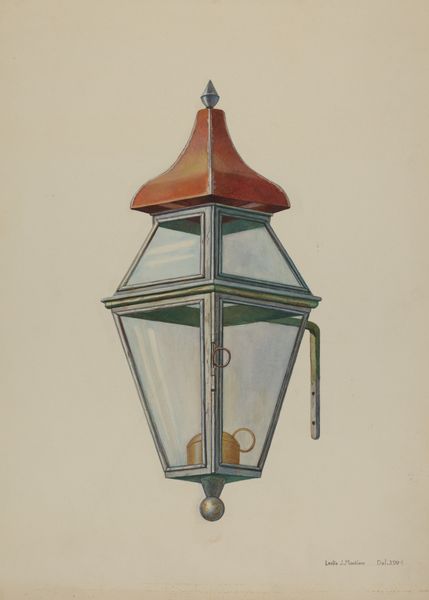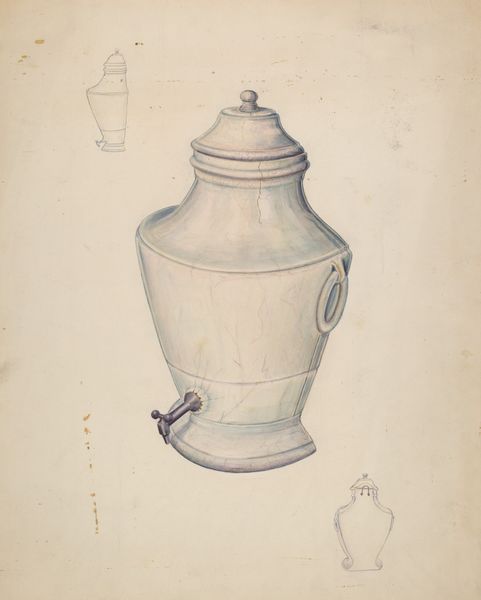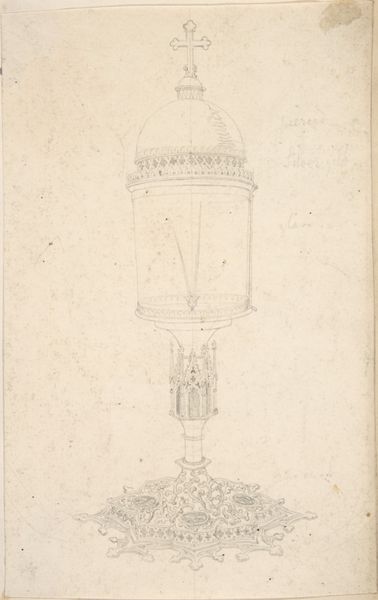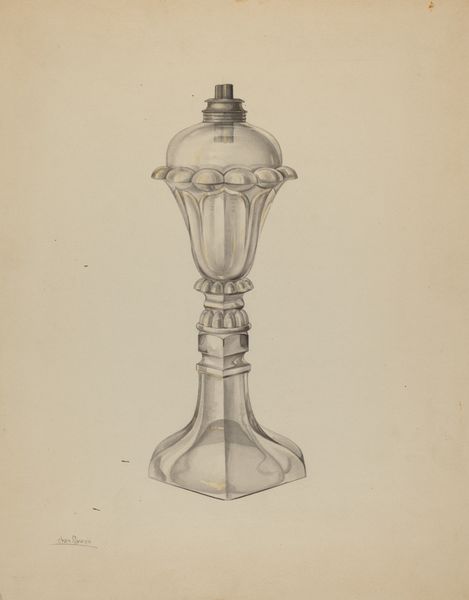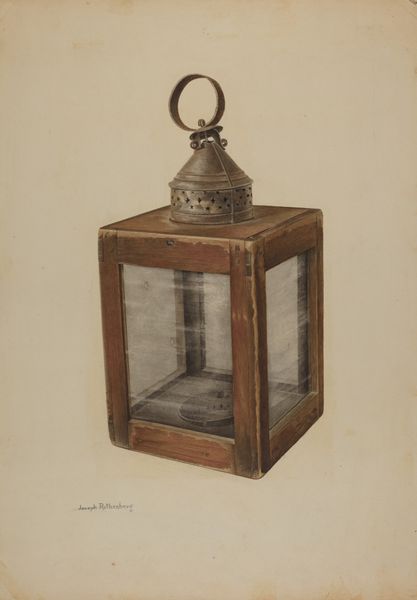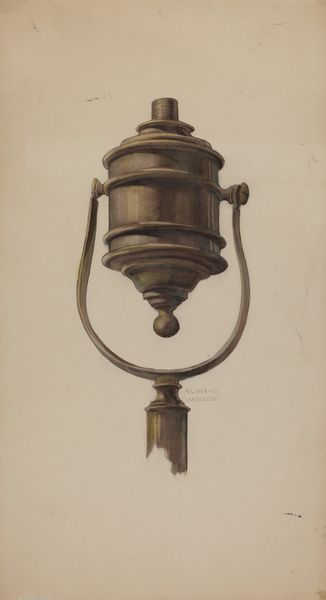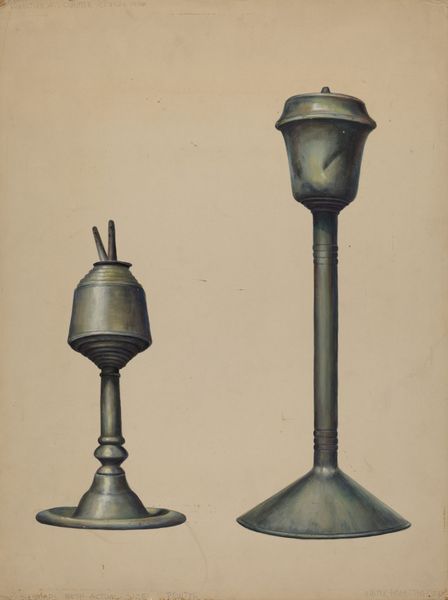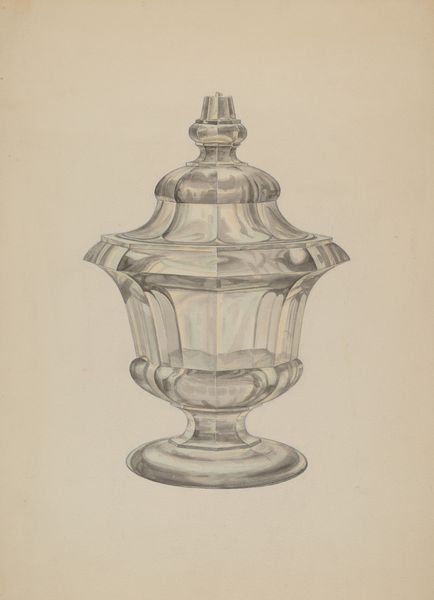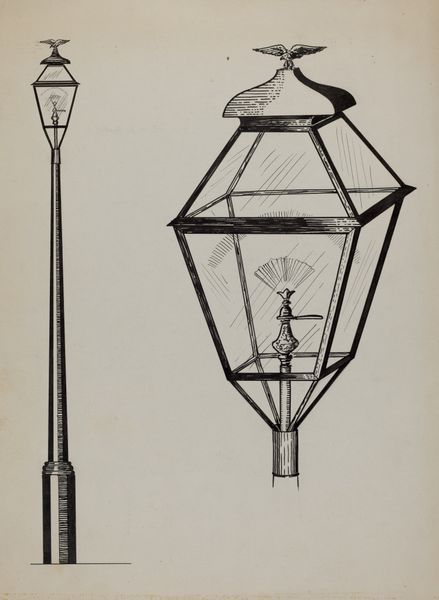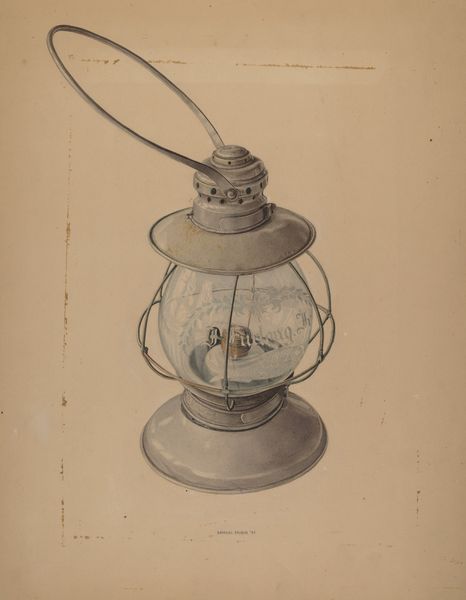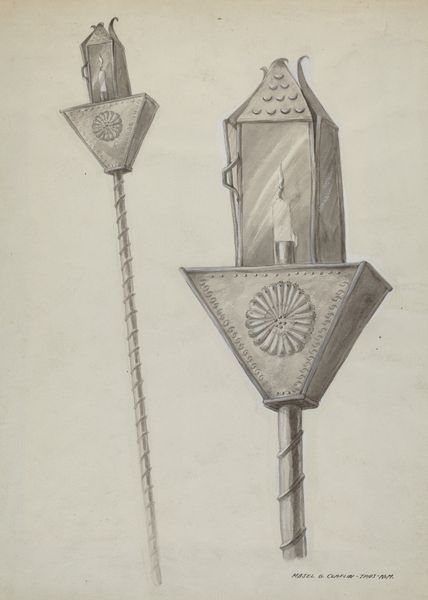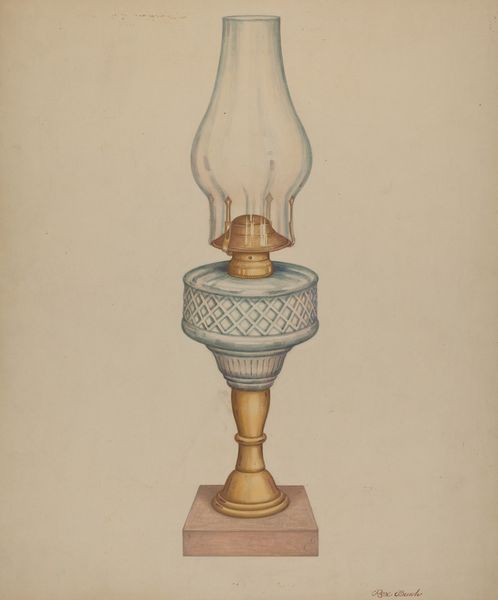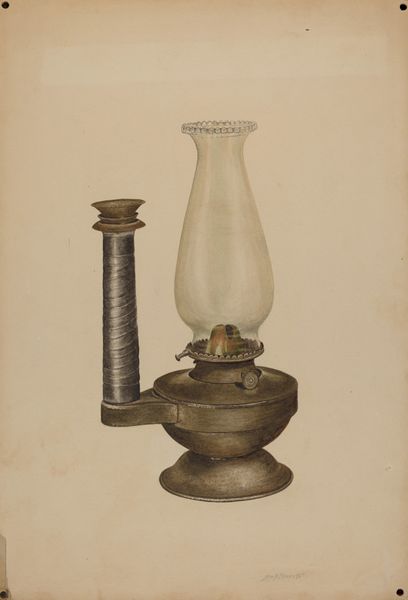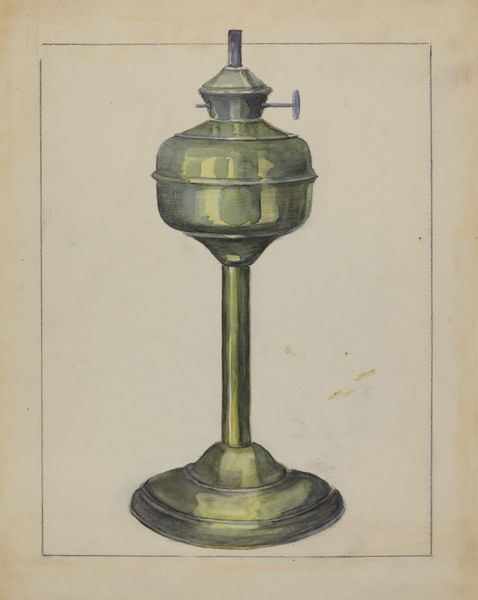
drawing, watercolor, pencil
#
drawing
#
watercolor
#
pencil
#
watercolor
#
realism
Dimensions: overall: 56.8 x 37.5 cm (22 3/8 x 14 3/4 in.)
Copyright: National Gallery of Art: CC0 1.0
Editor: This is Kurt Melzer’s "Sperm Oil Street Lamp," created around 1937, rendered in pencil and watercolor. The image has such a quiet, unassuming mood. It feels so technical and exact, a sort of study, even. What jumps out at you when you see this? Curator: Immediately, I'm struck by the representation of labor and access within this seemingly simple street lamp design. The drawing, in its technical detail, highlights the crafted elements: the specific joinery of the wood, the hand-blown glass, the metalwork of the hanging mechanism. Consider, too, the use of sperm whale oil itself – a valuable commodity obtained through a brutal, industrial process. Who did this process benefit, and whom did it exploit? Editor: So, it's less about the aesthetics and more about the lamp's production and the system behind it? I guess I wasn’t considering where the materials actually came from. Curator: Precisely! This isn’t simply a lamp; it's a representation of an entire economy and its ecological impact. How accessible was this light? How did it transform public space, and for whom? These lamps represent technological advancement fueled by extraction and global trade. Can you see how such an object speaks to wider networks of resource consumption? Editor: Yes, now I’m starting to see it differently. It seems much more complex than just a quaint streetlamp drawing from the past. Thinking about the whale oil...it definitely reframes my view. Curator: And what does thinking of this in terms of drawing--the choice of watercolor and pencil--mean to you? Editor: That those materials, being quite accessible, juxtaposed to whale oil that's obviously inaccessible speaks a lot. Curator: Precisely! And perhaps that suggests a critique itself of that divide. Thinking about all the labor required makes the final "art" all the more compelling. Editor: That is a good way of seeing this. It makes the drawing seem to say so much more, like a social statement, actually. Thank you. Curator: A pleasure to delve into materiality with you. It encourages one to look deeper!
Comments
No comments
Be the first to comment and join the conversation on the ultimate creative platform.
